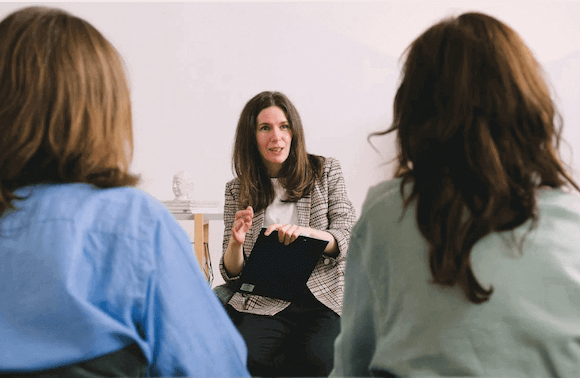Neurodevelopmental Disorders
What Is A Neurodevelopmental Disorder?
A neurodevelopmental disorder is a condition that affects brain function. Challenges in cognition, social interaction and behaviour are prominent features. It ranges from mild impairments, whereby those affected are able to live a relatively normal life, to severe disorders, which require lifelong care and dedicated support.
The condition affects the growth and development of the nervous system, leading to atypical functioning of the brain. These disorders typically manifest early in childhood and result from disruptions in the genetic, biological or environmental factors influencing neurological development.
What Are Some Different Types Of Neurodevelopmental Conditions?
Our expert team of qualified therapists are trained to assist with a variety of neureodevelopmental problems. Examples are in our list of neurodevelopmental disorders below:
Autism
Autism is characterised by challenges in social interaction, communication difficulties and restricted or repetitive behaviours. It is a spectrum disorder, meaning that individuals with autism may exhibit a wide range of strengths and challenges which may require personalised support and understanding.
ADHD
ADHD is characterised by persistent patterns of inattention, hyperactivity and impulsivity that can interfere with daily functioning. It often manifests in childhood and can continue into adulthood, impacting various aspects of an individual’s life, including academic performance and interpersonal relationships.
Learning Difficulties
Learning difficulties refer to challenges individuals may face in acquiring, processing or applying information, which can impact academic performance and everyday activities. Specific learning difficulties can manifest in various forms, including difficulties with reading, writing or other cognitive processes.
Cognitive Difficulties
Cognitive difficulties encompass a range of challenges related to mental processes, including perception, memory, problem-solving and decision-making. These difficulties can affect an individual’s cognitive functioning and daily life.
Communication Difficulties
Difficulty communicating involves challenges in expressing oneself or understanding others, often impacting verbal and non-verbal interactions. Struggling with difficulty of communication can hinder interpersonal relationships.
Neurodevelopmental Therapy in 3 Steps
Step 1: Assessment And Planning
The first step involves a comprehensive assessment to understand the individual’s specific neurological challenges, developmental stage and functional abilities. Based on the assessment, a plan may be crafted to address the person’s unique needs.
Step 2: Neurodevelopmental Exercises
Targeted interventions will be used to promote optimal developmental progress. Our therapists use specialised activities, exercises and techniques to address specific challenges, such as motor coordination, sensory integration and communication skills.
Step 3: Monitoring And Adjustment
If necessary, we can offer ongoing monitoring and assessment to gauge progress and make any adjustments to the intervention plan. Our therapists collaborate closely with individuals and their families, adapting strategies based on observed improvements or emerging challenges.
Is There A Neurodevelopmental Clinic Near Me?
Our neurodevelopment team can offer support from our practices in Hackney (E2 9FN), Finchley (N3 2JU) and Brixton/Clapham (SW2 5UL). Home visits are also available on request.
We also offer therapy sessions online via zoom or over the phone. This means that you can get access to the support that you need wherever you are based in the UK. Locations include but are not limited to Cardiff, Cotswold, Coventry, East Sussex, Manchester, Nottingham, Plymouth, Sheffield and Windsor.
How Can The Oak Tree Practice Help Me With Neurodevelopmental Difficulties?
Our team have extensive experience in supporting those facing neurodevelopmental issues. Whether you have severe learning difficulties, social communication difficulties or any other problem, our qualified therapists can assist you and help you to manage your condition.
Our neurodevelopmental approach includes Occupational Therapy, Cognitive Behavioural Therapy and Speech Therapy. We will employ targeted interventions and personalised strategies to address specific challenges, fostering skill development, enhancing adaptive behaviours and promoting overall well-being.

Client Testimonials For Issues We Have Helped With
Frequently Asked Questions About Neurodevelopmental Disorders
Do You Offer Private Neurodevelopmental Assessments?
Yes we offer private ADHD and Autism assessments at The Oak Tree Practice. For more information, please visit our ADHD Assessment and Autism Assessment pages.
How Long Is A Therapy Session With The Oak Tree Practice?
Sessions with The Oak Tree Practice last 50 minutes. They can be completed in-person in one of our clinics, over the phone or online via zoom.
Is Intellectual Disability A Neurodevelopmental Disorder?
Yes, intellectual disability is considered a neurodevelopmental disorder. It is characterised by limitations in intellectual functioning and adaptive behaviours that emerge during the developmental period.
Is Anxiety A Neurodevelopmental Disorder?
Anxiety is generally not classified as a neurodevelopmental disorder. Rather it falls under the broader category of mental health disorders.
Does Neurodevelopmental Therapy Work?
Neurodevelopmental therapy has shown effectiveness in improving the functional abilities and quality of life for individuals with developmental disorders. This is achieved through structured assessments, targeted interventions and continuous monitoring.
Is It Possible To Have An Alcohol Related Neurodevelopment Disorder?
No, it is not a recognised diagnosis. However, prenatal alcohol exposure can lead to Foetal Alcohol Spectrum Disorders (FASDs), which may include neurodevelopmental impairments such as intellectual disabilities, behavioural issues and learning difficulties in individuals whose mothers consumed alcohol during pregnancy.
